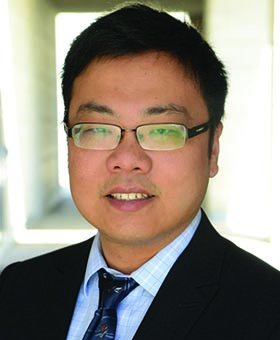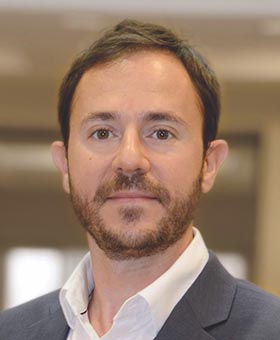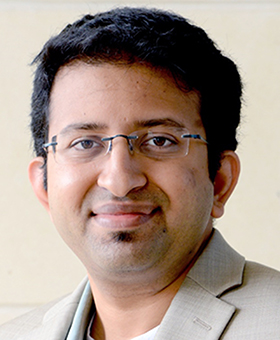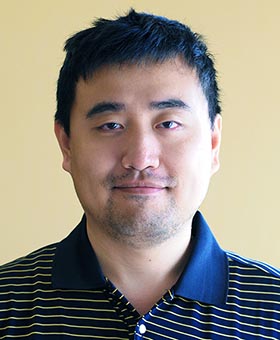



(April 11, 2019) – Four UTSA researchers have each been awarded a National Science Foundation (NSF) Faculty Early Career Development (CAREER) Award, totaling $2 million in new research funding for San Antonio’s largest public research university. CAREER Awards, one of the NSF’s most prestigious programs, helps UTSA advance closer to National Research University Fund (NRUF) eligibility.
UTSA’s 2019 CAREER Award recipients include:
To earn NRUF eligibility, UTSA must meet qualitative and quantitative targets such as restricted research expenditures, the quality of an institution’s faculty and its annual rate of doctoral degrees awarded. To evaluate the quality of an institution’s faculty for NRUF eligibility, Texas considers only the most prestigious professional achievements. NSF CAREER Awards are among those highly recognized honors.
“Through our various research excellence initiatives, the research culture on campus is evolving. The NSF Early CAREER award is a success marker in the research world, and is an amazing accomplishment by our esteemed faculty members. Their achievement elevates and promotes the quality of our faculty and the research conducted at UTSA to prospective students and peers alike,” said Bernard Arulanandam, UTSA interim vice president for research, economic development, and knowledge enterprise.
Dong’s NSF CAREER Award of $500,181 will support his project, “Holistic Assessment of the Impacts of Connected Buildings and People on Community Energy Planning and Management.” The funding will allow Dong to develop a new method of energy planning and management for smart communities and cities.
“This CAREER award will help me achieve my long-term career goal of advancing interdisciplinary research on sustainable and smart cities, where smart communities, people, grid, transportation, water systems and others interplay and to make a real world impact on energy efficiency and environmental sustainability,” said Dong.
Gatsis will further his research on electricity distribution networks and water distribution systems as part of his project, “Optimal Interdependent Operation of Electricity Distribution Grids and Water Distribution Systems in Smart Cities.” His $500,000 CAREER award will support the development of more reliable and cost-effective electricity and water delivery.
“It’s an honor to receive this award,” said Gatsis. “It will enable me to explore an exciting and timely research direction. This project also supports education through enhancement of the power engineering curriculum at UTSA.”
Guda was awarded $530,688 for his project, “Programming Vascularization by Design in Porous Composites,” which will generate new discoveries about how blood vessels grow.
“What we learn about how these vessels grow will allow us to design new biomaterials solutions for tissue engineering and regenerative medicine,” said Guda. “Understanding the underlying science could also potentially help us understand what goes wrong with vessel formation during cancer, when competent, structured networks of vessels are not formed.”
Wang will use his $492,358 CAREER award to develop techniques for better detection and repair of software bugs in his project, “Analysis and Repair of Build Scripts for DevOps Software Practice.” His research interests include enhancing software productivity and quality using more robust software build systems.
“By reducing the bugs in software build systems, my research will lead to more timely software release and software products of higher quality, which will benefit people who directly use or are involved in activities supported by the software,” said Wang.
The NSF CAREER Award supports early-career faculty who have the potential to serve as academic role models in research and education and to lead advances in the mission of their department or organization. Unlike most research grants, this award requires both strong scholarly research and a significant plan for education and mentorship.
Eleven UTSA faculty have won CAREER Awards over the last five years.
Learn more about the NSF CAREER Award.
Learn more about UTSA’s strategic vision.
Celebrate UTSA’s 50th Anniversary and share social media posts about the 50th using the hashtag #UTSA50.
Connect with UTSA online at Facebook, Twitter, YouTube, Instagram and LinkedIn.
UTSA Today is produced by University Communications and Marketing, the official news source of The University of Texas at San Antonio. Send your feedback to news@utsa.edu. Keep up-to-date on UTSA news by visiting UTSA Today. Connect with UTSA online at Facebook, Twitter, Youtube and Instagram.
Move-in Day is an exciting time for incoming students. Students living in Chaparral Village move in from August 20-21. The UTSA Housing and Residence Life (HRL) team looks forward to welcoming you all and helping you settle into your room.
Chaparral VillageMove-in Day is an exciting time for incoming students. Students living in Laurel Village move in on August 22. The UTSA Housing and Residence Life (HRL) team looks forward to welcoming you all and helping you settle into your room.
Laurel VillageThe College of Sciences welcomes our newest Roadrunners to UTSA at VIVA Science! This interactive event connects students with faculty, staff, student leaders, and peers while highlighting the opportunities available across the College.
Outdoor Learning Environment 2 (OLE), Flawn Building, Main CampusWe're excited to welcome the new class of UTSA College of Liberal and Fine Arts (COLFA) students to campus! Move In To COLFA is strongly recommended for new students in COLFA because it gives you the chance to learn about the Student Success Center, learn how to do college successfully and meet new friends.
Galleria (MH 2.01), McKinney Humanities Building, Main CampusBuild connections with your Alvarez College of Business peers and learn more about the Career Compass program! This opportunity will provide fun interactions, giveaways and a chance to meet your next friend!
Richard Liu Auditorium (BB 2.01.02,) Business Building, Main CampusCelebrate the end of summer and the start off a great fall semester with The Housing Block Party! This event will have live music, carnival-style treats, artists, games, and activities galore. Come and join us for a night of fun!
Multipurpose Room/Lawn, Guadalupe Hall, Main CampusBe part of an unforgettable night as SOSA takes the field for its first public performance of the season! Experience the power, pride, and pageantry of UTSA’s marching band. Learn beloved traditions, practice cheers, and feel what it means to be a Roadrunner.
Campus Rec FieldsThe University of Texas at San Antonio is dedicated to the advancement of knowledge through research and discovery, teaching and learning, community engagement and public service. As an institution of access and excellence, UTSA embraces multicultural traditions and serves as a center for intellectual and creative resources as well as a catalyst for socioeconomic development and the commercialization of intellectual property - for Texas, the nation and the world.
To be a premier public research university, providing access to educational excellence and preparing citizen leaders for the global environment.
We encourage an environment of dialogue and discovery, where integrity, excellence, respect, collaboration and innovation are fostered.